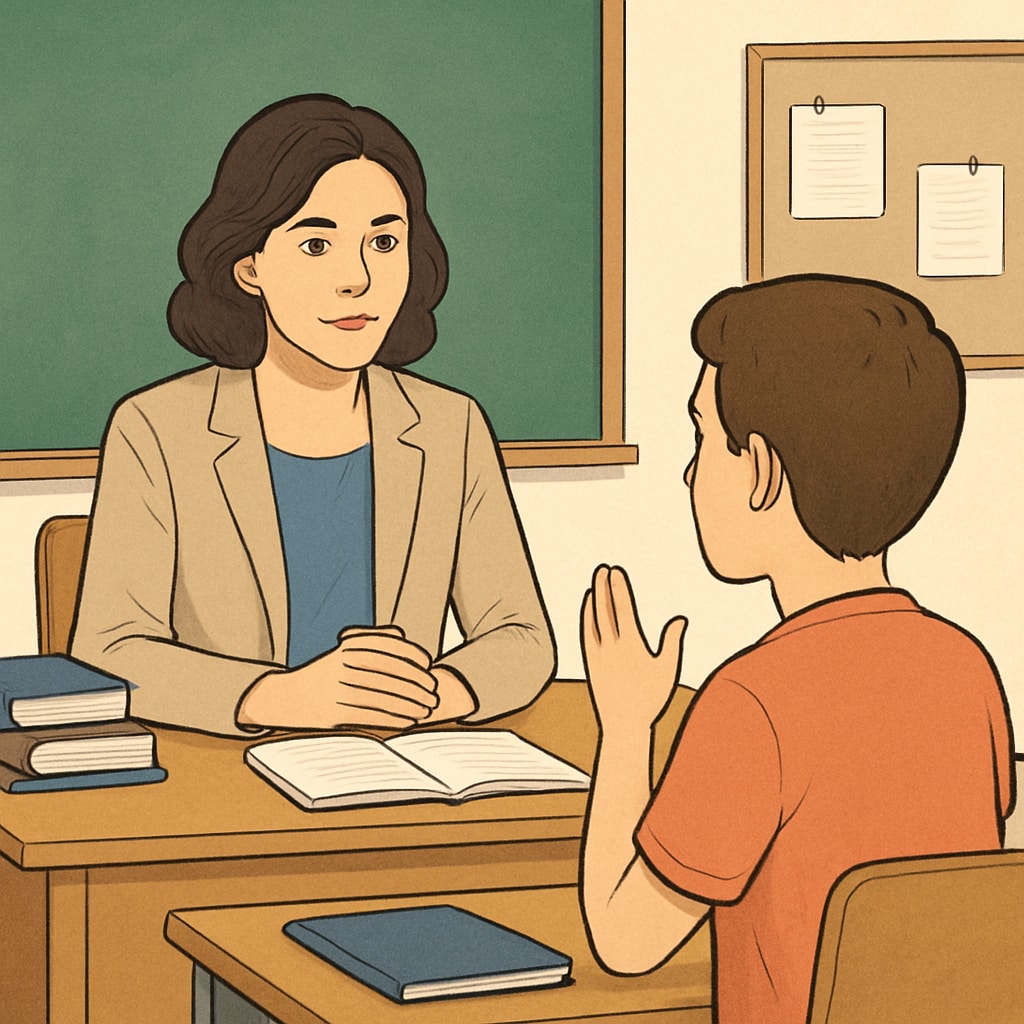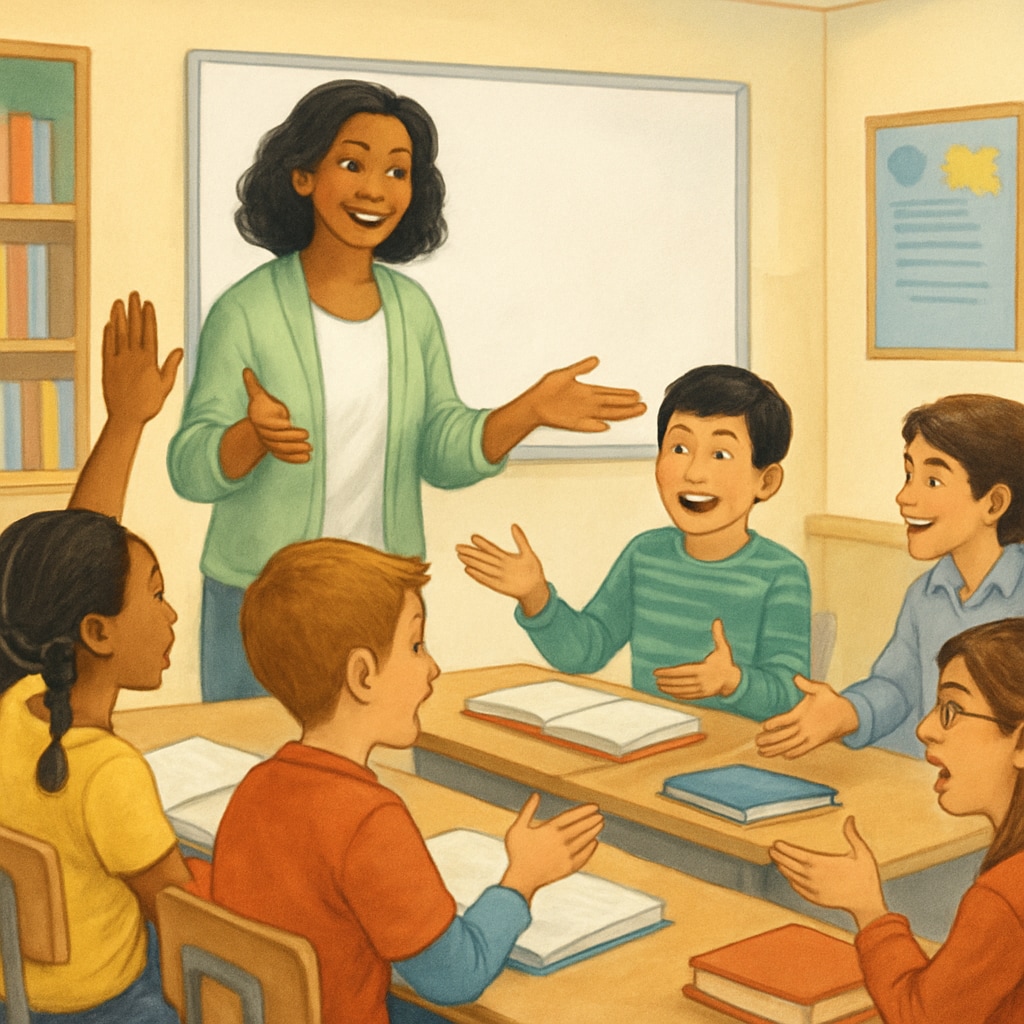In education, moments of genuine connection and mutual respect can leave lasting impressions. One such moment occurred when a student expressed heartfelt gratitude to their teacher with the simple words, “Thank you for truly listening.” This phrase underscores the profound impact of respect and active listening in the classroom. By honoring student voices, educators can foster an environment where confidence and motivation thrive. The story not only highlights the importance of respect in education but also serves as a reminder of the transformative power of these seemingly small interactions.

The Importance of Listening in Education
Listening is more than just hearing words; it is about understanding and valuing the perspective of another person. In the classroom, active listening allows educators to connect with students on a deeper level, addressing their concerns and acknowledging their unique viewpoints. For example, when a teacher takes the time to listen to a student’s ideas about a project or their struggles with a topic, it can make the student feel seen and respected. This sense of being heard can significantly enhance their confidence and willingness to engage.
Research supports the link between respectful interactions and student outcomes. According to Britannica’s insights on education, communication and respect are crucial for effective teaching and learning. When students feel their views are respected, they are more likely to participate actively and take ownership of their learning journey.
When Respect Builds Confidence and Motivation
Respect acts as a foundation for building student confidence. Imagine a classroom where every student feels valued and understood. Such an environment allows students to take risks, ask questions, and express themselves without fear of judgment. Teachers who actively practice respect—whether by listening intently or encouraging open dialogue—create a safe space for growth and exploration.
An inspiring story comes to mind: A middle school teacher once invited students to share their opinions on how a lesson could be improved. One student hesitated, fearing their idea might not be taken seriously. However, the teacher listened carefully and implemented the suggestion. The student later expressed their gratitude, saying, “Thank you for truly listening to me.” This simple act of respect not only boosted the student’s confidence but also motivated others to share their thoughts in future lessons.

The Ripple Effect of Respectful Teaching
Respectful teaching does more than impact individual students; it creates a ripple effect that influences the entire classroom dynamic. When students feel respected, they are more likely to treat others with kindness and empathy. This mutual respect fosters collaboration and teamwork, essential skills for success both in and out of school.
Furthermore, respectful interactions have long-term benefits. As students grow older, the lessons of respect and active listening they experience in the classroom often carry into their personal and professional lives. For example, learning to articulate viewpoints while valuing others’ perspectives is a critical skill in the workplace and broader society. A Wikipedia article on empathy explains how understanding others’ emotions and viewpoints can strengthen interpersonal relationships, making respect an essential life skill.
How Educators Can Foster Respectful Classrooms
Creating a respectful classroom is a deliberate process that requires commitment. Here are some practical strategies educators can implement:
- Active Listening: Practice listening without interrupting, and validate student perspectives by acknowledging their contributions.
- Encourage Autonomy: Provide opportunities for students to make decisions about their learning, such as choosing project topics or setting goals.
- Model Respect: Demonstrate respectful behavior in interactions with students and colleagues, setting an example for students to follow.
- Celebrate Diversity: Honor the diverse backgrounds and experiences of students, fostering an inclusive environment where everyone feels valued.
As educators, the goal is not just to teach academic content but to shape students into respectful, confident individuals prepared to contribute to society. By prioritizing respect and listening, teachers can leave a legacy of positive influence that extends far beyond the classroom.
Readability guidance: Use concise paragraphs and lists to summarize key points. Maintain a balance between examples, actionable strategies, and supporting evidence. Incorporate transition words (however, therefore, for example) to enhance flow and clarity.


